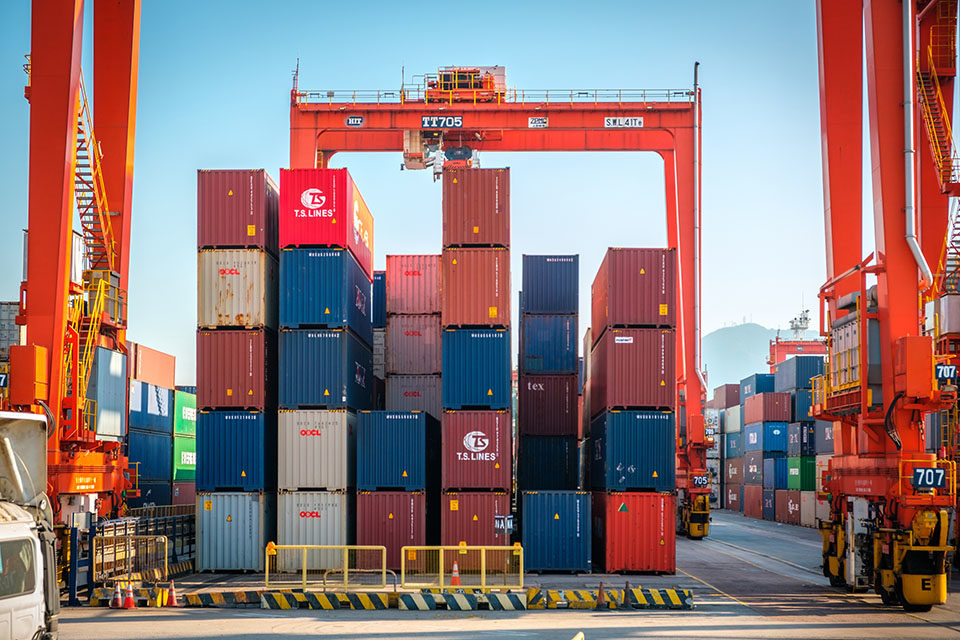WASHINGTON -- The International Dairy Foods Association (IDFA) announced today the formation of a Supply Chain Task Force to develop policy recommendations to address severe supply chain disruptions affecting the US dairy industry. Formation of the task force comes as the food and agriculture sector deals with several mounting challenges including labor shortages, steadily increasing costs for inputs such as ingredients and packaging, and major challenges moving products through sea and land ports. Supply chain challenges are affecting the dairy industry’s ability to remain profitable, support good-paying jobs, and provide healthy, nutritious food to families around the world.
Many of these issues will be discussed today in a hearing entitled, The Immediate Challenges to our Nation’s Food Supply Chain, hosted by the House Agriculture Committee and featuring testimony by Michael Durkin, president and chief executive officers of Leprino Foods Company, the world’s largest mozzarella cheesemaker, and a director on the IDFA executive council.
“Our supply chain is hurting and it’s going to take an all-hands-on-deck approach to fix it,” said Michael Dykes, D.V.M., president and CEO of IDFA. “At any given moment in recent weeks, between 70 to 90 cargo ships were anchored outside the ports of Los Angeles and Long Beach waiting to unload thousands of containers, and yet two-thirds of those containers will go back empty to Asia and other lucrative markets. Right now, the United States is unable to fulfill 22% of agricultural foreign sales due to a host of issues while prices for everything from semiconductors to salt continue to rise. The IDFA Supply Chain Task Force will work across our industry with partners from other sectors of the economy, the federal government, think tanks, and others to bring actionable solutions to the table.”
When the COVID-19 pandemic first disrupted supply chains, IDFA worked with other trade associations and the federal government to reroute dairy foods from shuttered restaurants to food banks across the country. IDFA also successfully advocated for language in the CARES Act to increase federal gross vehicle weight limits for a 120-day period to keep the supply chain intact. However, as the pandemic continues supply chain challenges have worsened and IDFA is now engaged in the following efforts:
As a member of the Agricultural Transportation Coalition, the Ag Transportation Working Group and the Safer Hauling and Infrastructure Protection (SHIP) Coalition, respectively, IDFA is:
- Supporting passage of the Ocean Shipping Reform Act, which would alleviate demurrage fees at ports and reinforce the authority of the Federal Maritime Commission over carrier practices;
- Ensuring provisions of the DRIVE-SAFE Act are included in the bipartisan Infrastructure Investments and Jobs Act, including a pilot program for 18–20-year-olds to participate in an apprenticeship program that will allow them to drive between states, helping to get more truck drivers on the road; and
- Advocating for the reconciliation bill (Build Back Better bill) to increase the Federal Truck Gross Vehicle Weight limit from 80,000 lbs. to 91,000 lbs. on an additional sixth axel, helping to move more product.
Since the start of the pandemic, IDFA has organized dozens of meetings between IDFA members and members of Congress in Washington and in districts across the country to ensure the voices of IDFA members are heard on supply chain challenges; and IDFA staff continue to meet with members of the Biden-Harris Administration to provide feedback and collaboration on possible solutions to supply chain issues.
“To maintain America’s competitive edge, we must act now to repair and improve our nation’s infrastructure. IDFA encourages Congress to pass the bipartisan infrastructure bill with provisions to address the truck driver shortage, as well as the reconciliation bill to increase vehicle weights," said Dykes. "Furthermore, Congress must pass the bipartisan Ocean Shipping Reform Act to alleviate long-term challenges at U.S. seaports."

